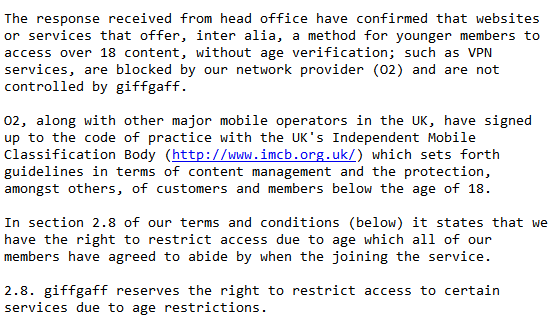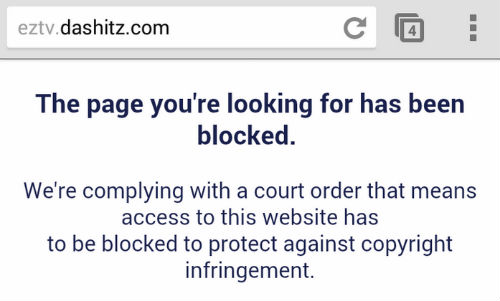Pirates Plan to Beat Up Amazon & Disrupt the Ebook Market
vendredi 6 septembre 2013 à 12:17 Of the hundreds of file-sharing sites operating during the past decade, only a few have admitted that their main aim is to be disruptive. The Pirate Bay is notable for having this kind of approach but not even the world’s most infamous torrent site had a particular exit strategy in mind.
Of the hundreds of file-sharing sites operating during the past decade, only a few have admitted that their main aim is to be disruptive. The Pirate Bay is notable for having this kind of approach but not even the world’s most infamous torrent site had a particular exit strategy in mind.
Last week we reported on Torboox, an ebook site providing millions of unauthorized ebooks to the public. The site made the news after German reporters were subjected to a criminal complaint by publishers who didn’t want the site named. While that complaint has now been withdrawn, Torboox say that not only will they continue, but they have a serious plan to shake up the ebook market by targeting Amazon. Here’s how.
In Germany books are subjected to fixed pricing by law, which means that books can only be offered for sale to the public at a price determined by the publisher. This effectively means that there is no competition between rival sellers on the issue of price, value placed on books is not linked to the cost of making them, and supply and demand variables are a thing of the past.
“German publishers can set the prices that Amazon sells ebooks for,” Spiegelbest, the admin of Toorboox, told TorrentFreak. “That’s why Amazon is trying to become a publisher itself by offering authors much better conditions than the publishers can.”
Spiegelbest says that there are currently two players of significance in the German ebook market – Amazon and Torboox – and they have things in common.
Torboox and Amazon are just the same, only the price is different.
 “If you look at it, they are very similar. Amazon is nothing but a hoster for the authors. No wonder they can offer 70% provision,” he says.
“If you look at it, they are very similar. Amazon is nothing but a hoster for the authors. No wonder they can offer 70% provision,” he says.
“Amazon does nothing to ‘produce’ books. Thus they are very similar to Torboox. Both of us – legal and illegal – are book hosters, not traditional book publishers. The ebook market is shared between two book hosters.”
According to Spiegelbest, publishers entering the German ebook market face many risks and a fierce competitor in Amazon, a company that has already prepared for a market without paper books.
“From the start Amazon saw themselves as a mere publisher of ebooks. Why let the publishers come into a market Amazon created and dominates already? So they do business with the authors willing to publish digitally,” he explains.
With the way that the market is arranged at the moment and as the paper market slows down, Spiegelbest says that German publishers are trapped. Amazon dominates the ebook market and is defending its market share. On the other hand is Torboox, a site offering ebooks much, much cheaper than anyone else in the market, Amazon included.
“We ourselves are not the born enemy of the publishers,” Spiegelbest explains. “We slash the prices okay, we steal their content if you want, but we see publishers as co-producers of books like the authors.
“For us it is not just hosting a book. That’s not enough. There is a lot more to it. It sounds strange but we love books. We are in it for the books not for the business. Amazon is our enemy – not life or death – but for the sake of the quality of future books.”
We asked how Torboox hopes to battle such a huge company, change the market and come out on top. The response is pretty controversial. According to Spiegelbest, piracy currently controls around 50% of the market, with Amazon on 40% and others holding the rest.
Send Amazon business – and then take them down.
 “If you look at it you get a funny picture. At the moment we are doing a good job for Amazon. We are offering the best-sellers of the publishers for nothing. Thus the publishers make less money, can pay their authors less and will eventually lose them to Amazon. Very nice construction this is. As Amazon itself is already cutting prices with their titles you have a double effect of strangling the publishers,” Spiegelbest explains.
“If you look at it you get a funny picture. At the moment we are doing a good job for Amazon. We are offering the best-sellers of the publishers for nothing. Thus the publishers make less money, can pay their authors less and will eventually lose them to Amazon. Very nice construction this is. As Amazon itself is already cutting prices with their titles you have a double effect of strangling the publishers,” Spiegelbest explains.
“At the moment you have high quality content of the publishers trying to enter the ebook market. But the prices are high and the conditions for the customers (DRM etc) are unacceptable. The publishers have no concept. You cannot sell ebooks like paper books.”
The solution, the Torboox admin believes, is offering a flat-rate, all you can eat service. He says he already has plenty of users willing to become customers.
“Our users could easily become customers of publishers with a sound concept. But publishers have to listen – not to us but to their would-be customers. They have superior content but have no answer to Amazons’s challenge,” he says.
The business model
“In the end the publishers have to talk to us. They have to find a way to make us legal. It is their job not ours. A flatrate will be 10 euros a month – no limit. Licensing will again be the job of the publishers. If a publisher isn’t wise enough to participate – no problem,” Spiegelbest says.
 “The author gets the same as Amazon pays. If Amazon pays 80% we pay 80%. They get paid according to what the users read. Every read page is paid.”
“The author gets the same as Amazon pays. If Amazon pays 80% we pay 80%. They get paid according to what the users read. Every read page is paid.”
Figures shared with TorrentFreak suggest that Torboox users are indeed consuming a lot of books which could conceivably translate into revenue if the userbase warms to the flatrate idea. Currently the site’s users are downloading around 2 million books per month, increasing to a predicted five million in the run up to Christmas.
At the moment the site operates on a donation model but as things grow the users will be expected to pay their way. It’s the publishers’ choice whether they get a look at that money, Spiegelbest says, while noting that the site continues to grow.
“If our server is grounded by traffic we will have our own cloud. We have plenty of time. Again if the publishers don’t want to talk to us it is okay. But one day without talking to us there will be a Christmas business without German book publishers that’s for sure. In a way it’s the Grooveshark thing. You want money for your files, you get it. You don’t want money for your files, we have them downloaded anyway. Be a wise man.”
In the end Spiegelbest believes that the publishers will have little choice but to come to him.
“We have the concept. The publishers have the content. Together we can indeed battle Amazon. And Amazon is not monopolizing films, games or music – why ebooks? For me the biggest problem is this: Will the publishers understand before they vanish? That’s 50-50, no more,” he concludes.
Source: Pirates Plan to Beat Up Amazon & Disrupt the Ebook Market


 In May 2013, Pirate Bay founder Gottfrid Svartholm stood trial for alleged hacking offenses carried out against Logica, a Swedish IT company working with local tax authorities, and local bank Nordea.
In May 2013, Pirate Bay founder Gottfrid Svartholm stood trial for alleged hacking offenses carried out against Logica, a Swedish IT company working with local tax authorities, and local bank Nordea. Following a series of High Court orders, six UK ISPs are required to block subscriber access to several of the world’s largest torrent sites.
Following a series of High Court orders, six UK ISPs are required to block subscriber access to several of the world’s largest torrent sites.
